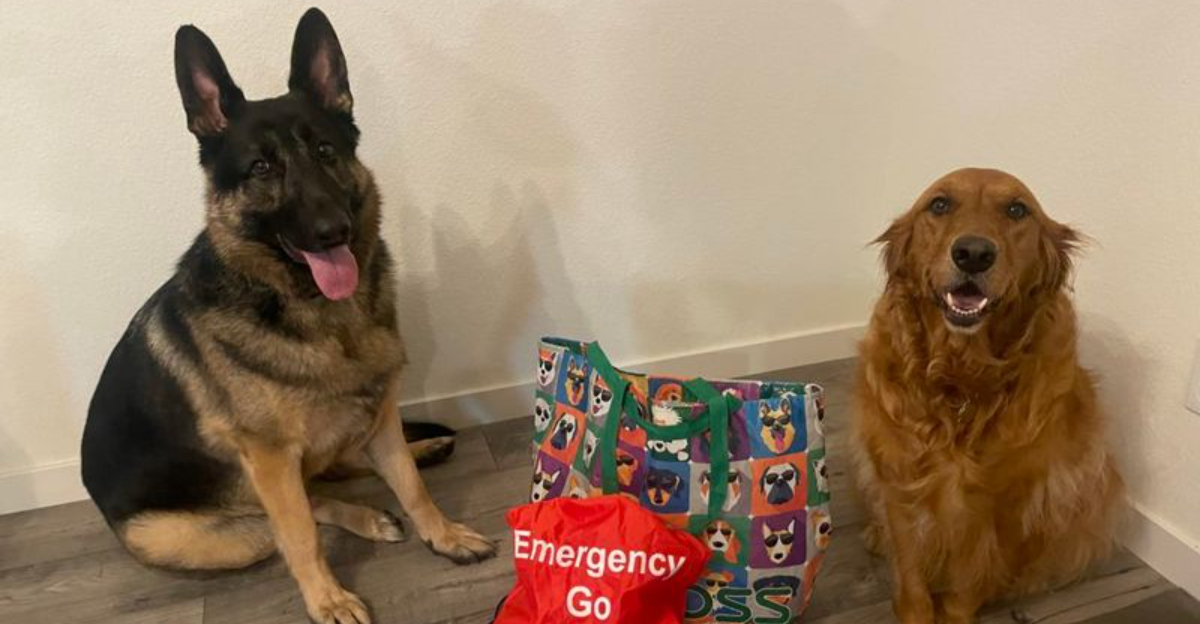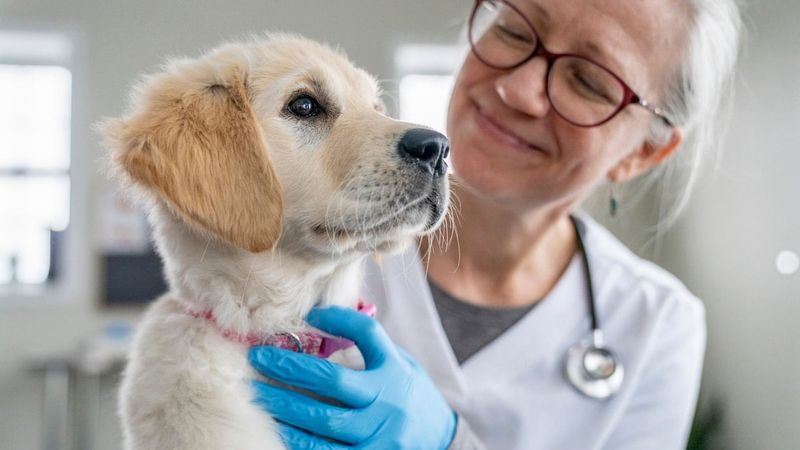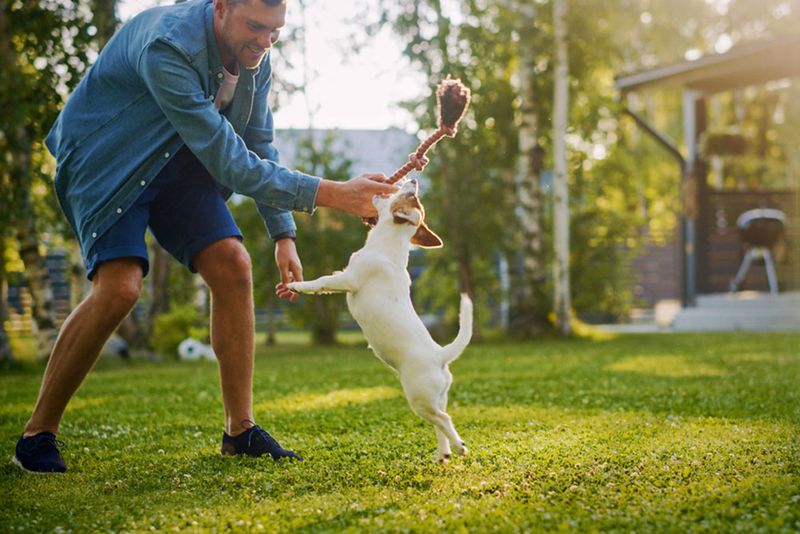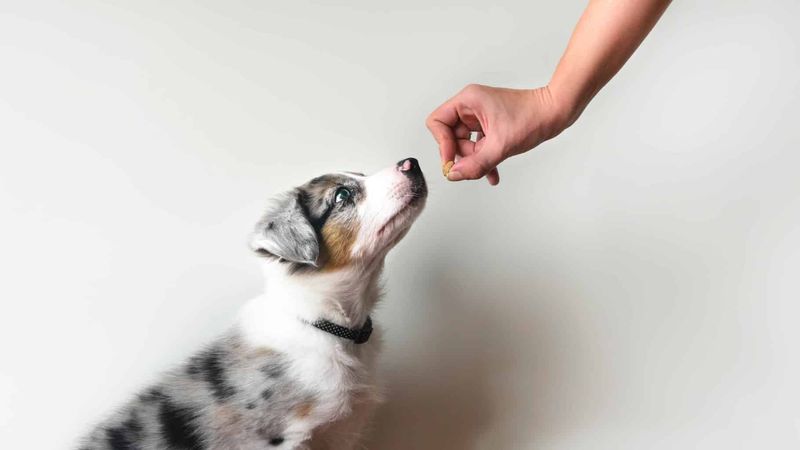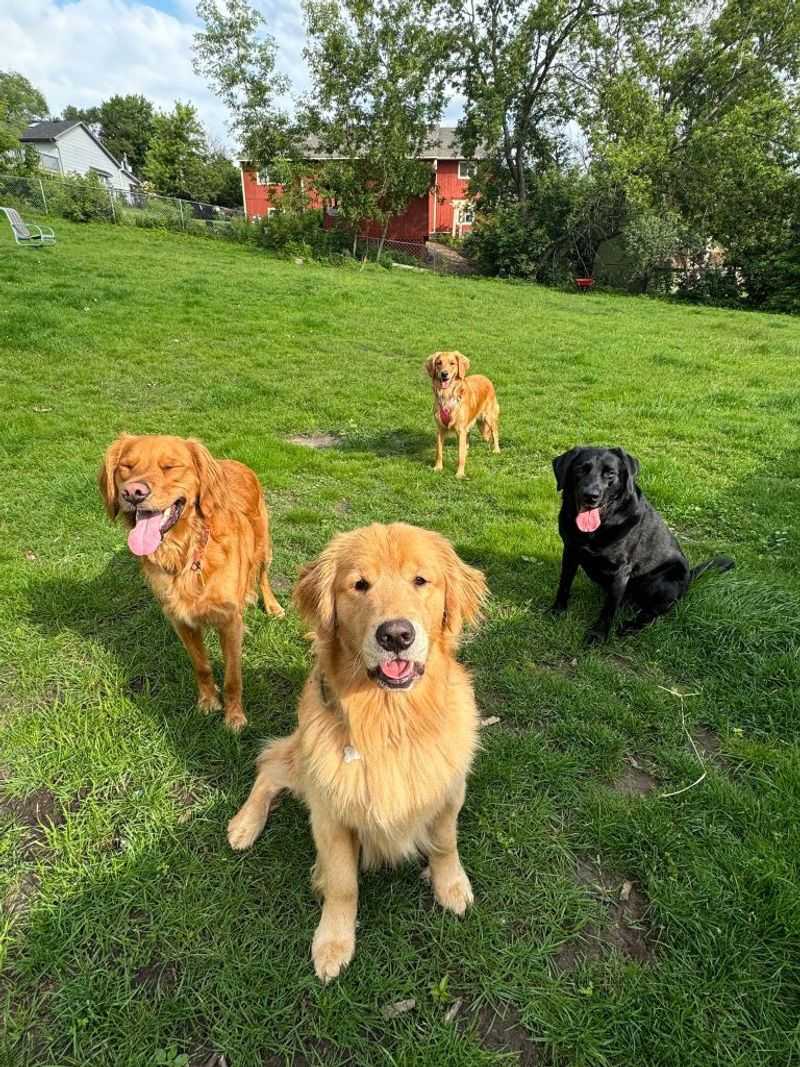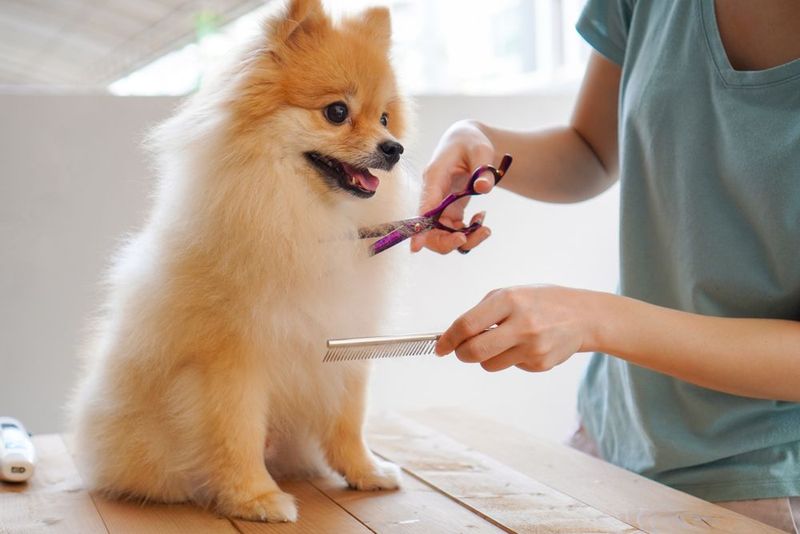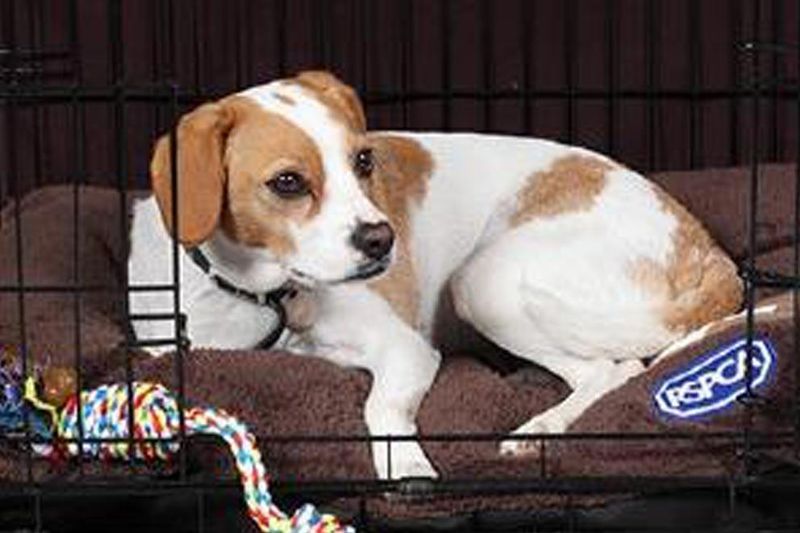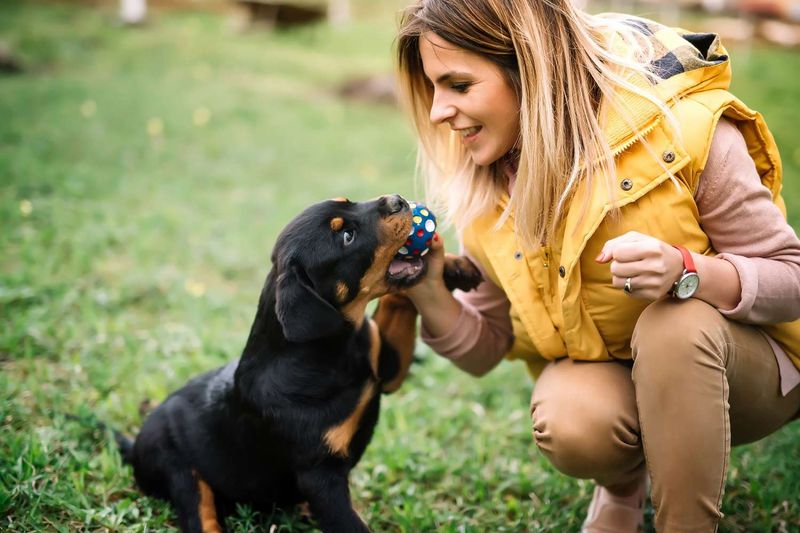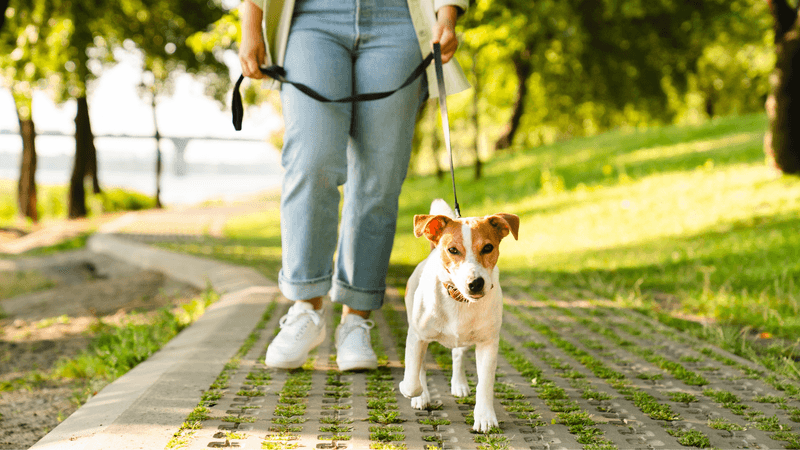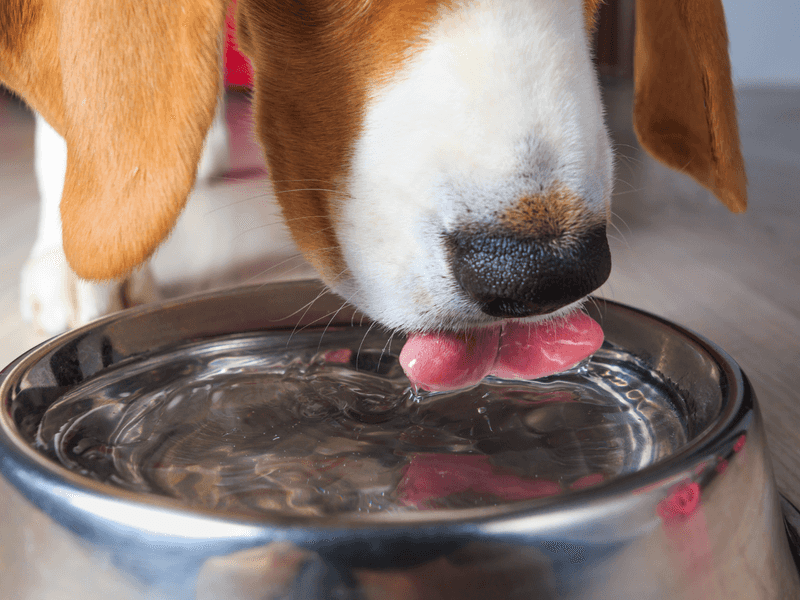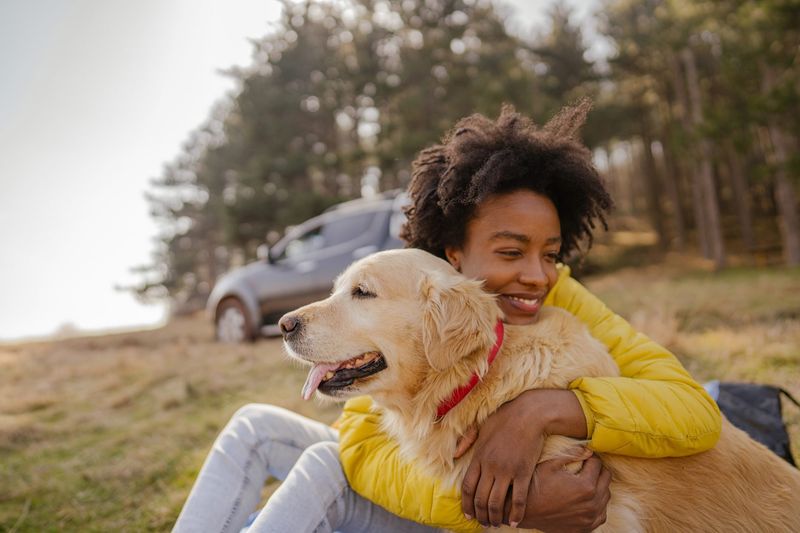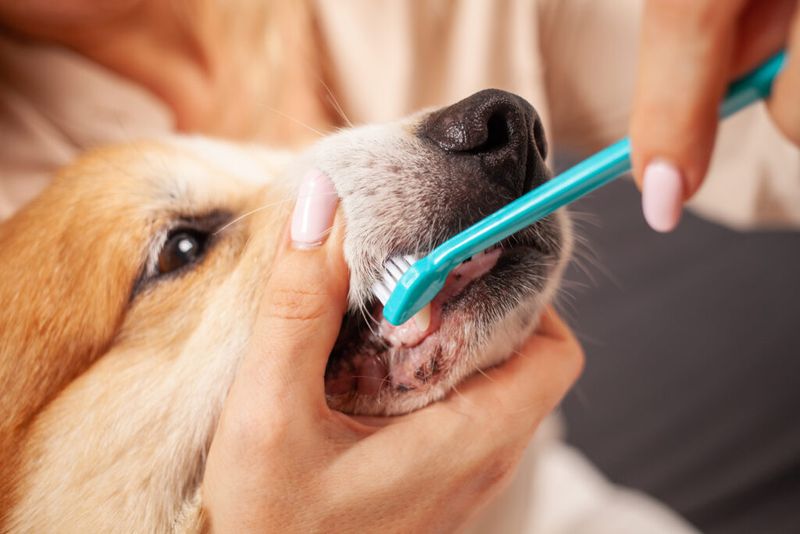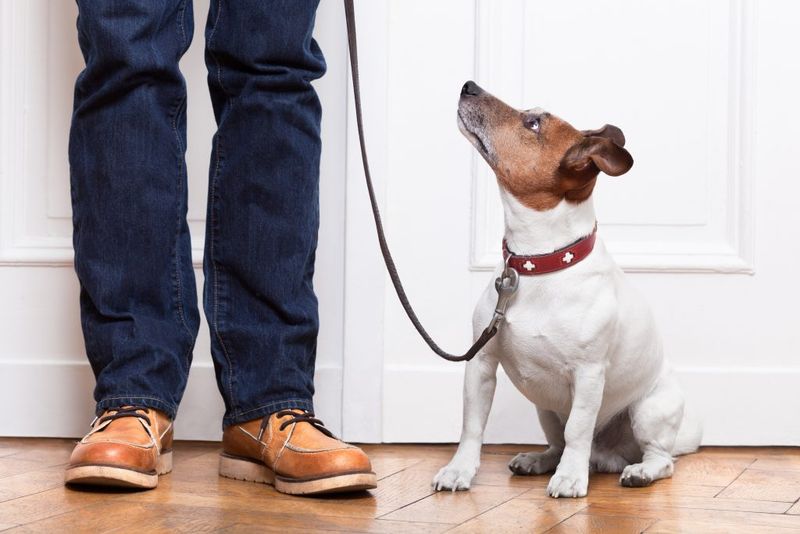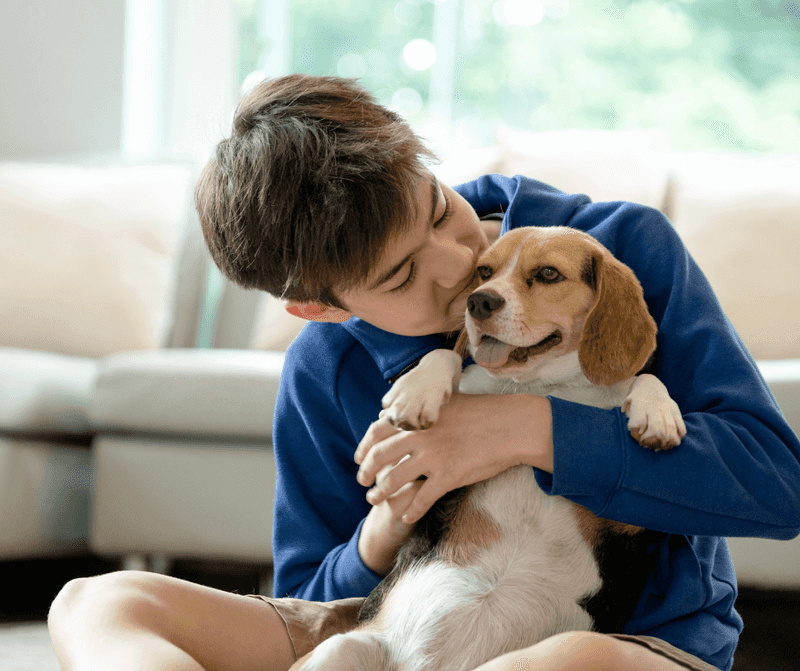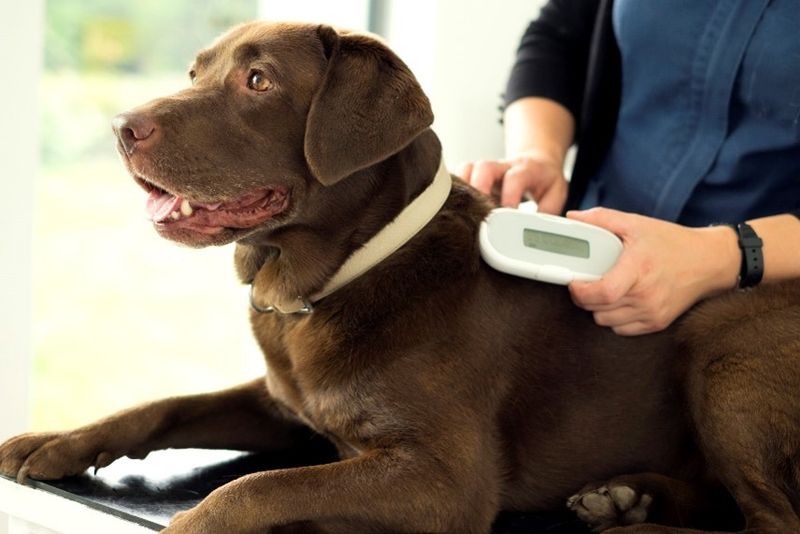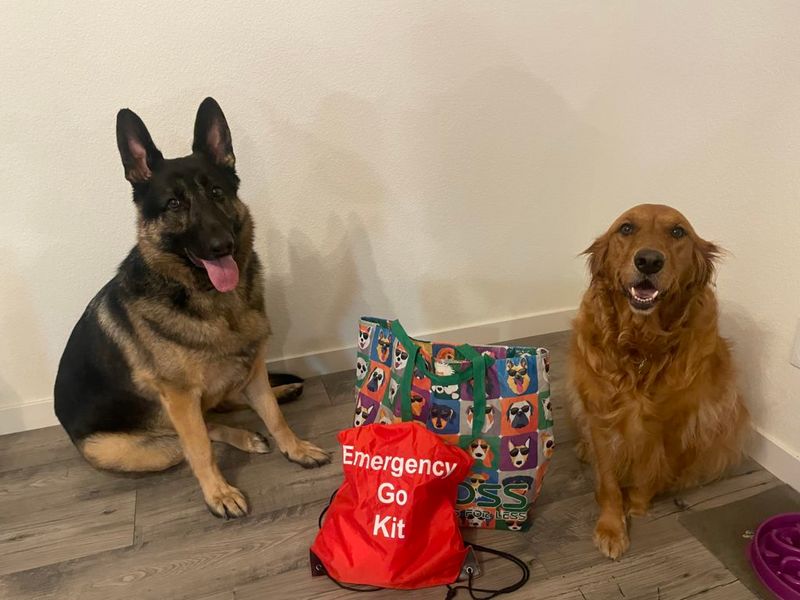Being a responsible dog owner means more than just providing food and shelter. It involves nurturing a happy, healthy, and well-adjusted canine friend. From regular vet visits to understanding your pup’s unique needs, responsible pet ownership requires time, effort, and love. Here’s a comprehensive guide to 18 essential habits that dog owners should embrace to ensure their furry companions thrive.
Regular Veterinary Check-Ups
Every responsible dog owner knows that routine vet visits are crucial. They ensure your pup is in tip-top shape and can catch potential health issues early. Regular check-ups are not just about shots; they include dental care and weight management as well. By staying on top of these visits, you’re actively contributing to your dog’s longevity and quality of life. Don’t wait until something seems off. Make these visits a non-negotiable part of your dog’s health regime, and you’ll likely be rewarded with many healthy, happy years together.
Proper Nutrition
Feeding your dog the right diet is paramount to their well-being. A balanced diet tailored to their age, size, and activity level makes all the difference. It’s not just about kibble; consider incorporating fresh vegetables and proteins. Consult your vet to ensure you’re meeting all nutritional needs. Every dog’s dietary requirements differ, so what works for one may not work for another. Responsible owners pay attention to labels and adjust portions as needed, ensuring that food is both nutritious and delicious.
Daily Exercise
A well-exercised dog is a happy dog. Regular physical activity helps burn off excess energy, making them more manageable and less destructive at home. Whether it’s a leisurely walk or a game of fetch, exercise is crucial. It promotes cardiovascular health and strengthens the bond between you and your pet. Different breeds have different exercise needs, so cater to your specific dog. Keep it varied and engaging to maintain their interest and enthusiasm. Remember, a tired dog is a good dog.
Consistent Training
Training is more than teaching tricks; it’s about instilling good behavior. Consistency is key, and using positive reinforcement like treats and praise achieves the best results. A well-trained dog is happier and safer because they understand boundaries and commands. Training should start early and continue throughout their life. Tailor the training to your dog’s temperament and always be patient. Remember, a consistent schedule fosters better learning. Whether it’s basic commands or advanced tricks, training enriches your dog’s life and makes cohabitation smoother.
Socialization
A well-socialized dog is typically more confident and less prone to anxiety. Introduce your dog to various environments, people, and other pets. Start early to get them accustomed to different sounds and sights. Socialization helps prevent behavioral issues like aggression and fearfulness. The more experiences a dog has, the more adaptable they become. Take them to parks, dog-friendly cafes, and pet events to expose them to new stimuli. This practice contributes to a well-rounded, happy pet.
Proper Grooming
Grooming is not just about looking good; it’s essential for your dog’s health. Regular grooming prevents matting, checks for parasites, and keeps skin healthy. Brushing varies by breed, but a regular schedule maintains a shiny, healthy coat. Nail trimming is also critical to prevent painful overgrowth. Bathing should be done as needed, using suitable products. Responsible owners make grooming a routine part of care, ensuring their dog is comfortable and clean. A well-groomed dog is not only healthier but also happier.
Safe Environment
Creating a safe environment is crucial for a dog’s well-being. This includes ensuring your home is free from hazards like toxic plants and dangerous objects. Secure fences and gates are critical for outside spaces. Indoors, keep harmful substances out of reach and provide plenty of stimulation with safe toys. Consider the dog’s perspective; what seems harmless to you might be a threat to them. Always monitor changes in their environment and adjust accordingly. A secure, hazard-free home leads to a stress-free, joyful life for your furry friend.
Regular Playtime
Playtime is not only fun but also essential for a dog’s mental and physical health. It helps stave off boredom and destructive behavior. Regular play strengthens the bond between you and your pet. Choose games that challenge them mentally and physically, like fetch or puzzle toys. Each dog has unique preferences, so explore different activities to see what they enjoy best. Playtime is an opportunity for you to understand your dog better and to engage them in a meaningful way.
Understanding Body Language
Dogs communicate through body language. Understanding their signals can prevent misunderstandings and strengthen your bond. Pay attention to their posture, tail, and ears. A wagging tail may not always mean happiness; it depends on the context. Recognizing signs of stress or discomfort allows you to intervene early. Body language reveals a lot about a dog’s emotional state. By learning to interpret these signals, you can provide better care and enhance your relationship. It’s all about listening with your eyes and heart.
Respecting Their Space
Just like us, dogs need their personal space. Having a designated area where they can retreat is important for their emotional health. This space should be comfortable, with their bed, toys, and perhaps a blanket. Respect their need for solitude, especially if they’re feeling overwhelmed. Acknowledging their boundaries fosters trust and respect. It’s about balance; giving them freedom while being there when they need you. By respecting their space, you provide a sanctuary where they feel safe and loved.
Proper Hydration
Hydration is often overlooked but vital to a dog’s health. Fresh water should always be available, especially after play and in hot weather. Dehydration can lead to severe health issues, so keep an eye on their water intake. Change the water frequently and ensure the bowl is clean. Just like with food, different dogs have different needs based on size and activity level. Educate yourself on how much water your dog needs daily. Proper hydration supports digestion, organ function, and overall well-being.
Emotional Support
Dogs thrive on human interaction and emotional support. Offering love and attention strengthens your bond and contributes to their happiness. Understand their needs for companionship and provide affection through petting and verbal praise. Dogs are intuitive and can sense your emotions too; be mindful of the energy you project. When they come for comfort, be there for them. Providing emotional support is about being present, understanding, and responding to their signals and needs.
Dental Care
Dental care is an often-neglected aspect of a dog’s health. Just like humans, dogs need regular brushing to prevent dental disease. Bad breath, plaque, and tartar buildup are signs of poor dental health. Invest in quality dog toothpaste and brushes. Regular dental care prevents discomfort and serious health issues. Make it a routine, starting from a young age. If brushing is difficult, consider dental treats or toys. Healthy teeth and gums lead to a happy, pain-free life for your furry companion.
Positive Reinforcement
Positive reinforcement is a powerful tool in training and strengthening your dog’s behavior. Rewarding good behavior with treats, affection, or playtime encourages them to repeat it. It’s an effective way to communicate what you expect. This method builds trust and fosters a positive relationship. Avoid punitive measures which can harm your bond. Instead, focus on reinforcing desired behaviors consistently. Start with simple commands and gradually introduce complexity. Remember, patience and positive reinforcement go hand in hand.
Routine Health Monitoring
Regular health monitoring at home complements veterinary visits. Check their coat, eyes, ears, and weight regularly. Look for signs of discomfort or abnormalities. Early detection of issues can save on vet bills and ensure prompt treatment. Create a checklist of what to monitor and establish a routine. By understanding what’s normal for your dog, you’ll notice changes quickly. This proactive approach keeps your pet healthy and reassures you of their well-being. Observant owners are key to catching potential problems early.
Pet Identification
Identification is crucial for a lost dog to return home safely. A collar with ID tags ensures quick identification, while microchipping offers a backup. Ensure details are current and the collar fits comfortably. Accidents happen, and pets can get lost; identification increases the chances of reunion. Responsible owners take this seriously and update information regularly. If your pet isn’t already microchipped, consider it as a reliable option for long-term security. It provides peace of mind knowing your beloved pet can be traced back to you.
Emergency Preparedness
Being prepared for emergencies can save your dog’s life. Have a dedicated emergency kit with food, water, and medical supplies. Include copies of their medical records and contact numbers. Familiarize your dog with the kit and its purpose. Practice evacuation routes and establish a meeting point. Emergencies are unpredictable, but preparation minimizes risks. Responsible owners plan for the unexpected to protect their furry friends. A little preparation goes a long way in ensuring safety and security during unforeseen events.
Unconditional Love
At the heart of responsible ownership is unconditional love. It’s being there through thick and thin, offering companionship and care. Dogs are loyal creatures and thrive on your affection. Show them love by spending quality time, understanding their needs, and being patient. Love transcends words; it’s in every walk, belly rub, and shared moment. Reassure them with your presence and commitment. Remember, your dog sees you as their world, and the love you give makes all the difference.
